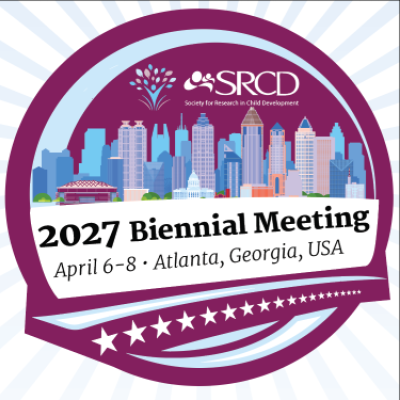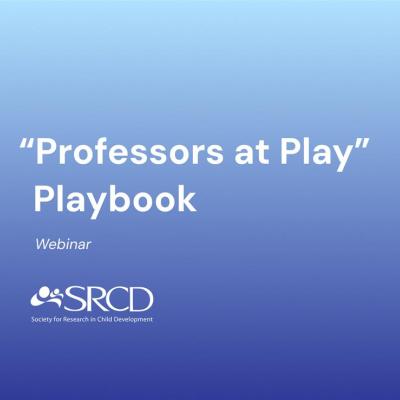Becoming an Ally and Co-Conspirator in Developmental Science
Watch now: Recording available to watch and share via the SRCD YouTube Channel.
As a continuation of efforts to address structural and systemic racism, discrimination and oppression, the next webinar in the SRCD Ethnic and Racial Issues Committee’s Anti-Racist Series explores allyship and becoming a co-conspirator within the context of developmental science. Participants are invited to explore how they can be agents of change to dismantle hegemonic ideologies, theories and methodologies that have shaped the field of development science and reified through the curriculum, advising, mentoring, research, funding and service that have become the hallmark of the field. Participants will be introduced to grounding terminology; co-construct an understanding through the sharing of personal and professional experiences in relation to allyship and becoming a co-conspirator; and, learn what steps we can take to begin or expand our efforts to disrupt ideas and dismantle long-standing structures that have contributed to scholarship that fails to capture the lived experiences of intersectional Black, Indigenous, and People of Color (BIPOC) or minoritized individuals. The webinar is appropriate for (non)academic researchers, students, practitioners and funders.
Meet the Experts:
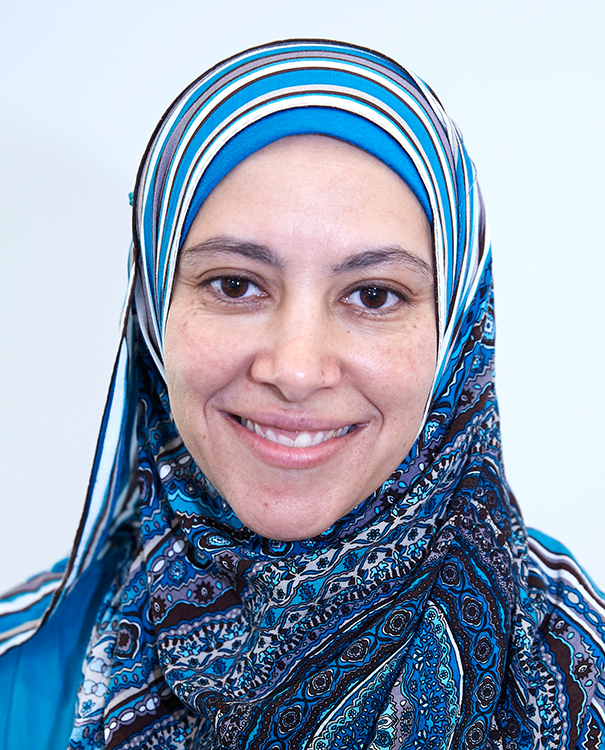 Mona M. Abo-Zena, Ph.D., is an Assistant Professor of Early Childhood Education and Care at the University of Massachusetts Boston. She integrates research, theory, and practice to support the positive development of children and families of diverse (i.e., all) backgrounds and experiences and those who seek to support them. On individual, social, and structural levels, Dr. Abo-Zena draws from a critical developmental systems approach that is asset-based, while being sensitive to vulnerabilities and challenges. Her research focuses on the role of religion and religious and spiritual development (broadly defined) as a way of being and as a particular cultural fund of knowledge that affects learning and development. Dr. Abo-Zena locates religion within an intersectional framework that includes other dimensions of identity and social position, focusing on minoritized communities. In addition, her scholarship investigates how to support pre- and in-service teachers' critical praxis by examining the everyday practices of children and adults as lived experiences provide accessible entry points for partnering with families, researching, teaching, and theory-building around diverse experiences and outcomes. She earned her B.A. in sociology from the University of Chicago, Ed.M. from Harvard University, and Ph.D. in Applied Child Development from Tufts University. Dr. Abo-Zena’s work is informed by co-facilitating Seeking Educational Equity and Diversity (SEED) and other anti-oppression seminars and over 20 years of teaching, administrative, consulting, and board experiences in a range of P-16 educational contexts.
Mona M. Abo-Zena, Ph.D., is an Assistant Professor of Early Childhood Education and Care at the University of Massachusetts Boston. She integrates research, theory, and practice to support the positive development of children and families of diverse (i.e., all) backgrounds and experiences and those who seek to support them. On individual, social, and structural levels, Dr. Abo-Zena draws from a critical developmental systems approach that is asset-based, while being sensitive to vulnerabilities and challenges. Her research focuses on the role of religion and religious and spiritual development (broadly defined) as a way of being and as a particular cultural fund of knowledge that affects learning and development. Dr. Abo-Zena locates religion within an intersectional framework that includes other dimensions of identity and social position, focusing on minoritized communities. In addition, her scholarship investigates how to support pre- and in-service teachers' critical praxis by examining the everyday practices of children and adults as lived experiences provide accessible entry points for partnering with families, researching, teaching, and theory-building around diverse experiences and outcomes. She earned her B.A. in sociology from the University of Chicago, Ed.M. from Harvard University, and Ph.D. in Applied Child Development from Tufts University. Dr. Abo-Zena’s work is informed by co-facilitating Seeking Educational Equity and Diversity (SEED) and other anti-oppression seminars and over 20 years of teaching, administrative, consulting, and board experiences in a range of P-16 educational contexts.
 Diamond Y. Bravo, Ph.D., is an Assistant Professor of Psychology at the University of California, Riverside. She is a first-generation, Mexican-origin, multi-disciplinary scholar, with a background in health, experimental psychology, family and human development, and education. Informed by cultural ecological frameworks, Dr. Bravo’s research examines individual processes across families, schools, and international contexts to improve academic, psychological, and health outcomes. Using a developmental lens, her work investigates how cultural resilience and risk factors collectively inform achievement motivation and wellbeing among marginalized ethnic-racial minority and immigrant populations. In particular, her work examines how proximal contexts (e.g., family, peers, schools), features of socialization (e.g., familism values, discrimination, expectations), and individual characteristics (e.g., stress, perceptions, attitudes) collectively contribute to youths' adjustment (e.g., educational attainment, BMI, depressive symptoms, risky behavior engagement). In her work, Dr. Bravo aims to understand the dynamic role of culturally-centered promotive and protective resources, within ethnic-racial minority communities, that inform how marginalized youth are empowered and overcome sociocultural challenges (e.g., discrimination, acculturative/ enculturative stress). This work seeks to inform anti-racist and inclusive programming via applied psychologically grounded principles, underscoring intersections of culture, development, motivation, and psychosocial outcomes. To advance the social justice implications of developmental science, Dr. Bravo has worked with scholars and community members to translate research findings to implications for policy and practice.
Diamond Y. Bravo, Ph.D., is an Assistant Professor of Psychology at the University of California, Riverside. She is a first-generation, Mexican-origin, multi-disciplinary scholar, with a background in health, experimental psychology, family and human development, and education. Informed by cultural ecological frameworks, Dr. Bravo’s research examines individual processes across families, schools, and international contexts to improve academic, psychological, and health outcomes. Using a developmental lens, her work investigates how cultural resilience and risk factors collectively inform achievement motivation and wellbeing among marginalized ethnic-racial minority and immigrant populations. In particular, her work examines how proximal contexts (e.g., family, peers, schools), features of socialization (e.g., familism values, discrimination, expectations), and individual characteristics (e.g., stress, perceptions, attitudes) collectively contribute to youths' adjustment (e.g., educational attainment, BMI, depressive symptoms, risky behavior engagement). In her work, Dr. Bravo aims to understand the dynamic role of culturally-centered promotive and protective resources, within ethnic-racial minority communities, that inform how marginalized youth are empowered and overcome sociocultural challenges (e.g., discrimination, acculturative/ enculturative stress). This work seeks to inform anti-racist and inclusive programming via applied psychologically grounded principles, underscoring intersections of culture, development, motivation, and psychosocial outcomes. To advance the social justice implications of developmental science, Dr. Bravo has worked with scholars and community members to translate research findings to implications for policy and practice.
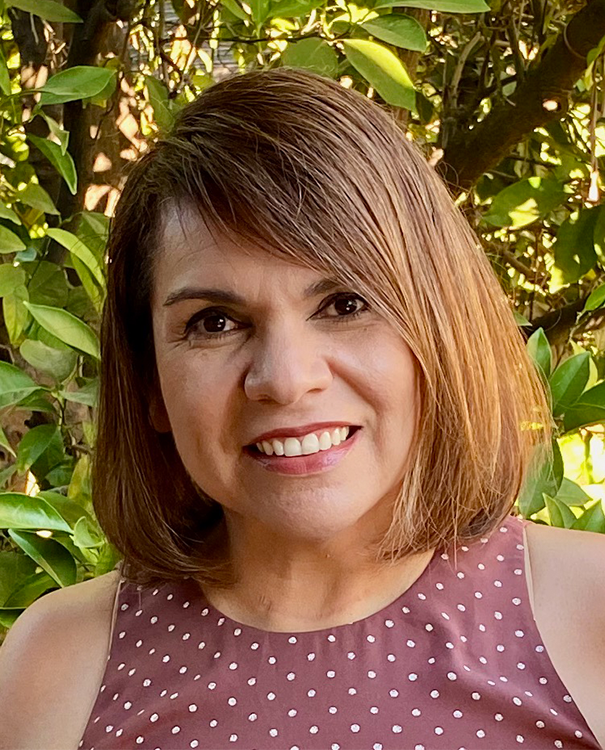 Gabriela Chavira, Ph.D., is currently a Co-PI for BUILD PODER. In this capacity, she has created a four-week entering to research program, Summer JumpStart, that provides culturally responsive undergraduate training in the biological sciences. She serves as a program co-director of the Student Training Core of BUILD, where she has overseen nearly 300 undergraduate minoritized students prepare for doctoral studies through year-long faculty mentored research. During her tenure at CSUN, in her research lab, she has mentored over 30 undergraduates to master's programs and 18 undergraduates and graduates to doctoral programs; the majority were BIPOC students. She also held an NIMHD RIMI subproject using critical race theory (CRT) as the theoretical framework to examine the psychological and academic consequences of students who experience a different culture at home and at school, which has resulted in two publications co-authored with former students and another two currently under review. She sponsored over 60 students at conferences, resulting in over 80 presentations. Chavira started as an NIH MBRS undergraduate scholar (1995-97) at CSUN and is a passionate and committed advocate for student access and success, receiving the campus-wide Don Dorsey Award for Excellence in Mentoring in 2013 and the Society for the Advancement of Chicanos/Hispanics & Native Americans in Science (SACNAS) 2020 Outstanding College/University Mentor.
Gabriela Chavira, Ph.D., is currently a Co-PI for BUILD PODER. In this capacity, she has created a four-week entering to research program, Summer JumpStart, that provides culturally responsive undergraduate training in the biological sciences. She serves as a program co-director of the Student Training Core of BUILD, where she has overseen nearly 300 undergraduate minoritized students prepare for doctoral studies through year-long faculty mentored research. During her tenure at CSUN, in her research lab, she has mentored over 30 undergraduates to master's programs and 18 undergraduates and graduates to doctoral programs; the majority were BIPOC students. She also held an NIMHD RIMI subproject using critical race theory (CRT) as the theoretical framework to examine the psychological and academic consequences of students who experience a different culture at home and at school, which has resulted in two publications co-authored with former students and another two currently under review. She sponsored over 60 students at conferences, resulting in over 80 presentations. Chavira started as an NIH MBRS undergraduate scholar (1995-97) at CSUN and is a passionate and committed advocate for student access and success, receiving the campus-wide Don Dorsey Award for Excellence in Mentoring in 2013 and the Society for the Advancement of Chicanos/Hispanics & Native Americans in Science (SACNAS) 2020 Outstanding College/University Mentor.
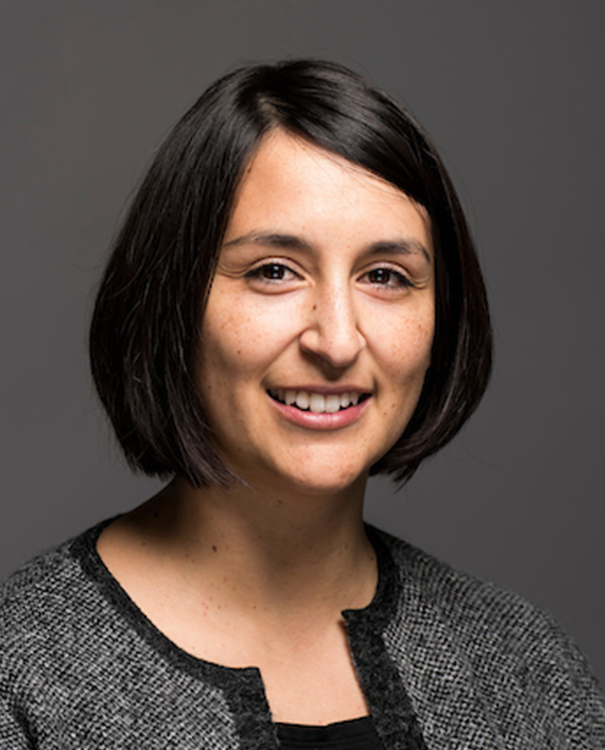 Mariah M. Contreras, Ph.D., is a Lecturer in the Department of Urban and Environmental Policy and Planning at Tufts University. Dr. Contreras is a developmental scientist whose program of research focuses on racial/ethnic minority populations in the U.S. context; with specific aims to document the development of adaptive parenting processes (e.g. ethnic-racial socialization) and parent-child dynamics across early childhood, and understand how these processes link to young children's well-being and school readiness. She is a former member of the University-based Child and Family Policy Consortium Steering Committee and is currently part of the Latinx Caucus and a member of the Ethnic and Racial Issues Committee of SRCD. Dr. Contreras received her B.A. from Colgate University in Educational Studies and Art and Art History, a Master's in Applied Child Development from Tufts University, and completed her doctoral training in the Eliot-Pearson Department of Child Study and Human Development at Tufts University.
Mariah M. Contreras, Ph.D., is a Lecturer in the Department of Urban and Environmental Policy and Planning at Tufts University. Dr. Contreras is a developmental scientist whose program of research focuses on racial/ethnic minority populations in the U.S. context; with specific aims to document the development of adaptive parenting processes (e.g. ethnic-racial socialization) and parent-child dynamics across early childhood, and understand how these processes link to young children's well-being and school readiness. She is a former member of the University-based Child and Family Policy Consortium Steering Committee and is currently part of the Latinx Caucus and a member of the Ethnic and Racial Issues Committee of SRCD. Dr. Contreras received her B.A. from Colgate University in Educational Studies and Art and Art History, a Master's in Applied Child Development from Tufts University, and completed her doctoral training in the Eliot-Pearson Department of Child Study and Human Development at Tufts University.
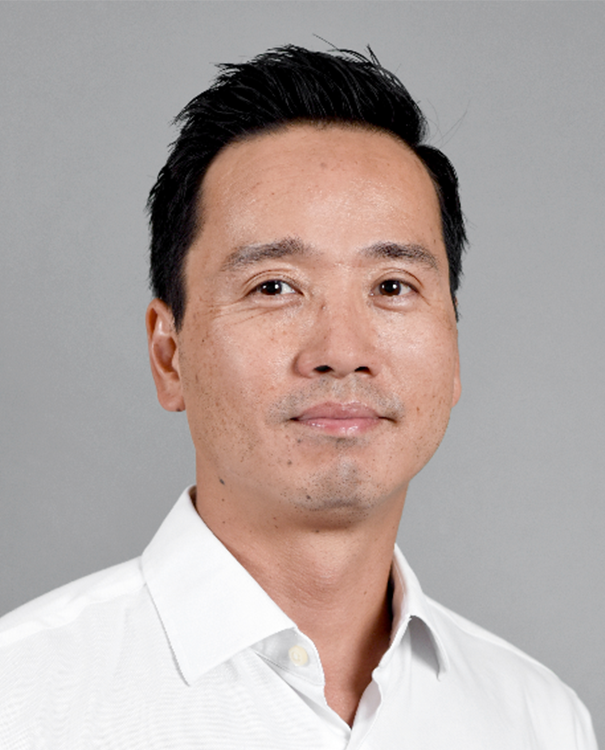 Hyung Chol (Brandon) Yoo, Ph.D., is an associate professor of Asian Pacific American Studies in the School of Social Transformation and the School of Social and Family Dynamics at Arizona State University. Drawing on Critical Race theory, his academic work broadly focuses on unique racialized risk, resiliency and resistance, and their psychological correlates among racially minoritized youth and families (including Asian Americans and multiracials). In collaboration with students and colleagues across disciplines, Dr. Yoo publishes on topics of perceived racism, internalization of the model minority myth, acculturation/enculturation, ethnic and racial identity, ethnic and racial socialization, critical consciousness, and measurement development. His recent work also includes development of new measures, Support for Black Lives Matter and Asian American Racial Identity, to understand how different minoritized groups engage in cross-racial solidarity work. He similarly teaches courses related, including cultural psychology, race and child development, Bruce Lee, and Asian American psychology. Dr. Yoo is also particularly active in both community and professional organizations that address Asian American mental health issues and needs.
Hyung Chol (Brandon) Yoo, Ph.D., is an associate professor of Asian Pacific American Studies in the School of Social Transformation and the School of Social and Family Dynamics at Arizona State University. Drawing on Critical Race theory, his academic work broadly focuses on unique racialized risk, resiliency and resistance, and their psychological correlates among racially minoritized youth and families (including Asian Americans and multiracials). In collaboration with students and colleagues across disciplines, Dr. Yoo publishes on topics of perceived racism, internalization of the model minority myth, acculturation/enculturation, ethnic and racial identity, ethnic and racial socialization, critical consciousness, and measurement development. His recent work also includes development of new measures, Support for Black Lives Matter and Asian American Racial Identity, to understand how different minoritized groups engage in cross-racial solidarity work. He similarly teaches courses related, including cultural psychology, race and child development, Bruce Lee, and Asian American psychology. Dr. Yoo is also particularly active in both community and professional organizations that address Asian American mental health issues and needs.
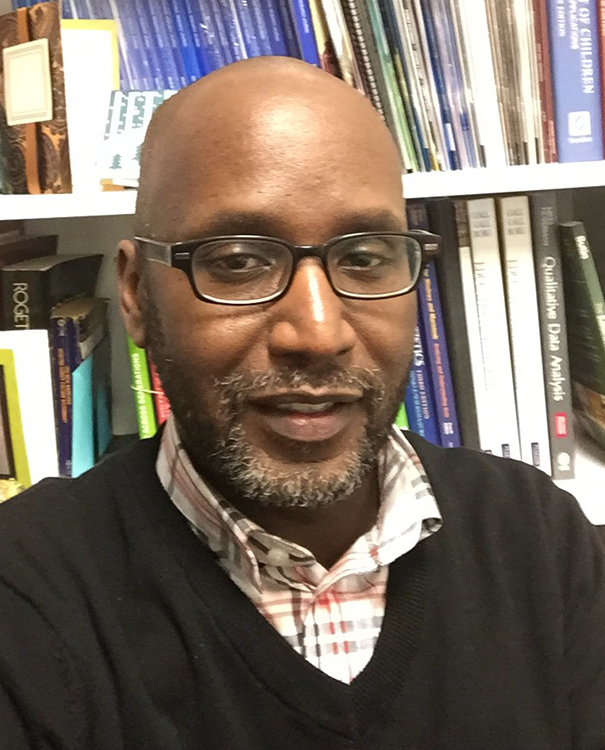 Lionel C. Howard, Ed.D., is an Associate Professor of Educational Research at The George Washington University, in Washington DC. Dr. Howard’s research interest includes, broadly, gender and racial identity development and socialization, motivation and academic achievement, and research methodology (qual/quant/mixed). He has worked on several local and national research projects focused on Black child development and improving the educational trajectory and schooling experiences of minoritized students. He has also served as a consultant on education policy and evaluation studies. Dr. Howard has published in the Journal of Applied Developmental Psychology, Journal of Black Psychology, Journal of Orthopsychiatry, Journal of Boyhood, Journal of Homosexuality, International Journal of Qualitative Studies in Education, and Harvard Educational Review. He is co-editor of Facing Racism in Education (3rd Ed), published by Harvard University Press, and is completing a manuscript on researcher vulnerability in social science research. His research has been funded by the National Science Foundation and National Institute of Health. Dr. Howard received his Ed.D. in Human Development and Psychology from Harvard University, Graduate School of Education, and completed a National Institute of Child Health and Development postdoctoral fellowship at the University of North Carolina at Chapel Hill in the Department of Psychology and the Frank Porter Graham Child Development Institute. He also has a M.A. in Measurement, Statistics and Evaluation from the University of Maryland, College Park, and B.A. in Applied Mathematics and Statistics from William Paterson University of New Jersey.
Lionel C. Howard, Ed.D., is an Associate Professor of Educational Research at The George Washington University, in Washington DC. Dr. Howard’s research interest includes, broadly, gender and racial identity development and socialization, motivation and academic achievement, and research methodology (qual/quant/mixed). He has worked on several local and national research projects focused on Black child development and improving the educational trajectory and schooling experiences of minoritized students. He has also served as a consultant on education policy and evaluation studies. Dr. Howard has published in the Journal of Applied Developmental Psychology, Journal of Black Psychology, Journal of Orthopsychiatry, Journal of Boyhood, Journal of Homosexuality, International Journal of Qualitative Studies in Education, and Harvard Educational Review. He is co-editor of Facing Racism in Education (3rd Ed), published by Harvard University Press, and is completing a manuscript on researcher vulnerability in social science research. His research has been funded by the National Science Foundation and National Institute of Health. Dr. Howard received his Ed.D. in Human Development and Psychology from Harvard University, Graduate School of Education, and completed a National Institute of Child Health and Development postdoctoral fellowship at the University of North Carolina at Chapel Hill in the Department of Psychology and the Frank Porter Graham Child Development Institute. He also has a M.A. in Measurement, Statistics and Evaluation from the University of Maryland, College Park, and B.A. in Applied Mathematics and Statistics from William Paterson University of New Jersey.
